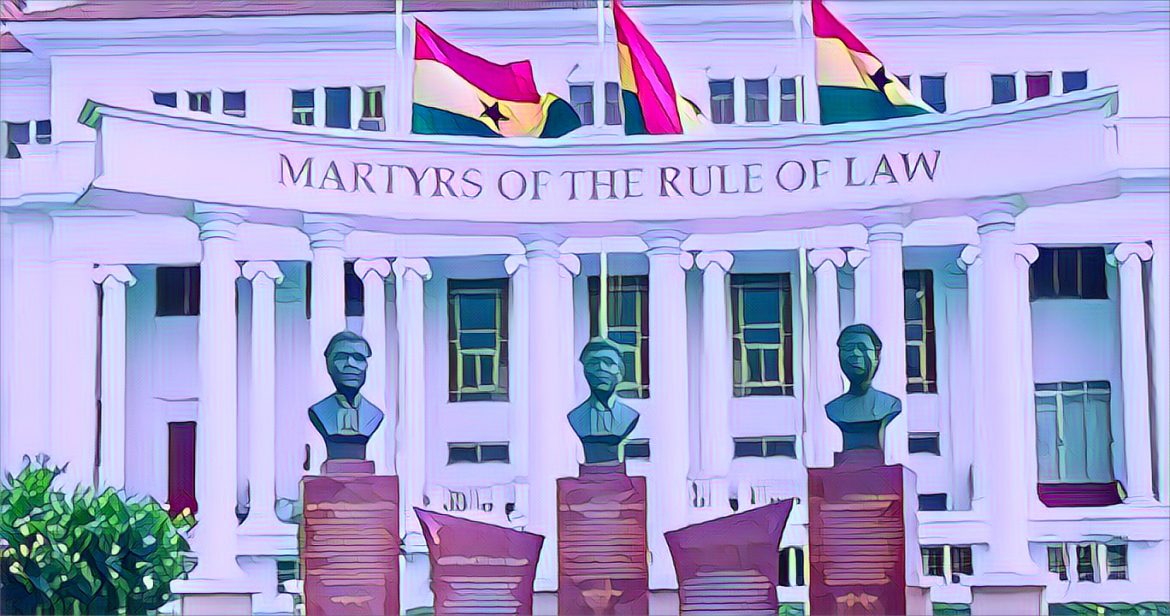Accra, Ghana – A man who generously allowed his friend’s family to live in his house rent-free has won a long legal battle to reclaim his property from his friend’s wife.
Tismark Inja, the plaintiff, had lent his house at the prestigious Airport Residential Area in Accra to his friend, Captain Timothy Laing, who was facing financial difficulties due to the collapse of their jointly-owned company, Remco Shipping.
However, when the Confiscated Assets Committee sought to return the property to Inja, the original owner, Captain Laing’s wife, resisted, claiming that her husband was the rightful owner of the house.
Inja, undeterred, initiated legal proceedings, securing a victory at the High Court. The defendants appealed the decision at the Court of Appeal, only to face another defeat. Their last resort, the Supreme Court, saw them challenging the lower court’s handling of a matter supposedly falling under the transitional provisions of the 1992 constitution. They also questioned the president’s authority to de-confiscate the property, citing constitutional sections.
However, the Supreme Court unequivocally declared Inja as the rightful owner, dismissing the appeal. The court, recognizing the merits of Inja’s case, awarded him general damages of GH¢50,000 and costs totalling GH¢30,000, bringing a definitive end to a legal battle filled with twists and turns.
A Tale of Friendship, Business and Property
The case unraveled a tale of friendship, business ventures, and a property entangled in the aftermath of a company’s downfall.
Inja and Laing were friends and business partners who established Remco Shipping, a company that operated in the maritime industry. The company was doing well until it faced a series of challenges, including a fire outbreak, a workers’ strike, and a government confiscation of its assets.
According to Inja, he had bought the house at the Airport Residential Area in 1983 with his own funds and registered it in his name. He had allowed Laing and his family to occupy the house in 1986 when they were evicted from their rented accommodation due to Remco’s financial woes.
Inja said he had never charged them any rent or transferred the ownership of the house to Laing. He had also paid all the utility bills and property rates for the house.
He said he had asked Laing’s wife to vacate the house in 1992 after the Confiscated Assets Committee had cleared him of any wrongdoing and returned the property to him. However, she refused to do so, insisting that her husband was the owner of the house.
She claimed that Laing had paid for the house and had only put it in Inja’s name as a security measure. She also alleged that Inja had forged documents to prove his ownership of the house.
A Victory for Justice
The Supreme Court, however, found no merit in the defendants’ arguments and upheld the findings of the lower courts that Inja was the bona fide owner of the house.
The court noted that the defendants had failed to produce any credible evidence to support their claim of ownership, such as a deed of transfer, a receipt of payment, or a witness testimony.
The court also rejected the defendants’ contention that the matter fell under the transitional provisions of the constitution, which deal with the resolution of disputes arising from the confiscation of properties by previous regimes.
The Supreme Court also dismissed the defendants’ challenge to the president’s power to de-confiscate the property, stating that the president had acted within his constitutional mandate.
The court concluded that the defendants had abused the judicial process and had caused Inja undue hardship and inconvenience. The court commended Inja for his generosity and patience and expressed hope that the verdict would bring closure to the matter.
Source: Ghana Web




